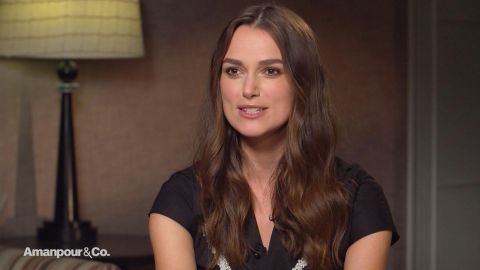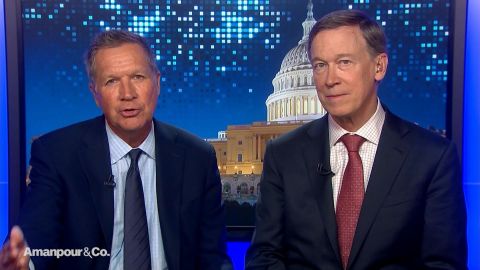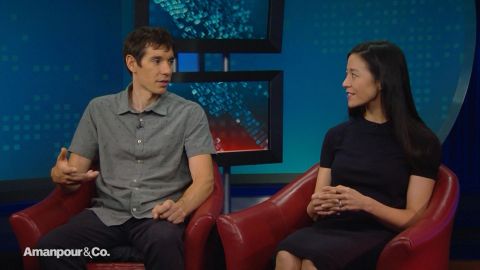Read Transcript EXPAND
You said that a lot of the modern films that you were offered a lot of your scripts were just too violent for you.
Well, I think that it was the I didn't feel that the female character was well-rounded enough to warrant the violence perhaps against her.
And I think that violence is interesting as part of our society.
I think art should absolutely deal with that and deal with its causes and deal with its roots.
But I want it to be done in quite a serious way I don't just want to be the pretty woman that has a horrific act done to her cause that that isn't interesting for me. So I think like in the in the modern day pieces that I was offered very often that would it would be within that realm.
And that's not something that I feel comfortable doing.
Again that's just me.
That was what I was offered obviously other people are being offered different things.
You know it was always that all the supportive wife and I thought you know I'm quite supportive of her. I don't need to play that at work as well.
Right you're married, you've got a kid. We'll talk about your kid in a second. Go back to Bend it Like Beckham which was just a fabulous role and a great film.
What happened to afterwards.
Because you have written about having had a breakdown by the time you were 22 you filmed this when he was 16 the pressure of everybody after you the pretty girl the paparazzi.
Yeah I mean I think you know I think fame is a very strange thing at any age but I think at that age I want to say particularly for a young woman but not particularly maybe for boys as well you're still becoming you know you're not who you are going to be.
And I think when you're suddenly famous at the age when you're still trying to figure things out that can be very complex when you're suddenly in this limelight where things are so extreme you know people love you or they hate you and they think you are terrible and you'll always be terrible you're amazing and you're always going to be and being buffeted by those storms at that stage I found very very very difficult.
Also it was a time of extreme paparazzi so there was never a day when I wasn't being followed by 20 guys you know which was a kind of 24/7 stalking really.
And OK they were being paid for it but actually you know I've been I've had various stalking situations and I've had various paparazzi situations and it feels the same regardless of you know what the intention is behind it.
And you know so yeah by the time I got to 22 I think the pressure of all of those things and was just it just got too much.
And you sort of took time off I think when traveling for about a year.
So for me I'm super lucky I mean I you know I had the money to be able to get help which is huge.
And I also had a career where I could step away and I could step back too and I'd already earn enough money that I didn't have to work for that year.
I didn't know it was just going to be.
Maybe it would have been longer but it happened to be just over a year I think.
So I was very lucky from that standpoint but also very lucky my family is amazing.
I have a completely solid thing behind me which makes a huge difference when something like that happens.
You know and I think particularly in England at the moment we've obviously got a mental health crisis and the funding is so low in all of those things.
About This Episode EXPAND
Christiane Amanpour interviews Governors John Kasich & John Hickenloooper and speaks with Keira Knightley. Hari Sreenivasan speaks with rock climber Alex Honnold and filmmaker Elizabeth Chai Vasarhelyi.
LEARN MORE


